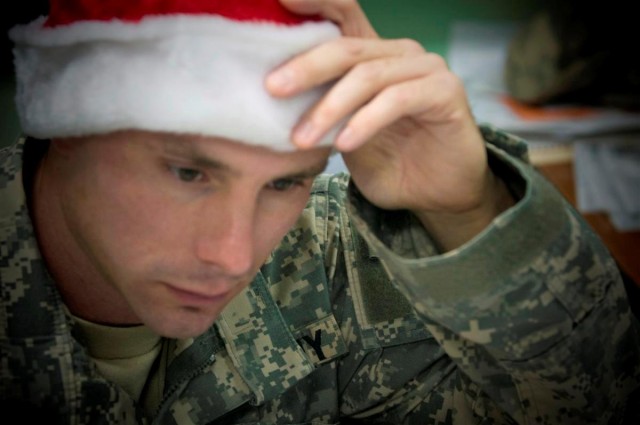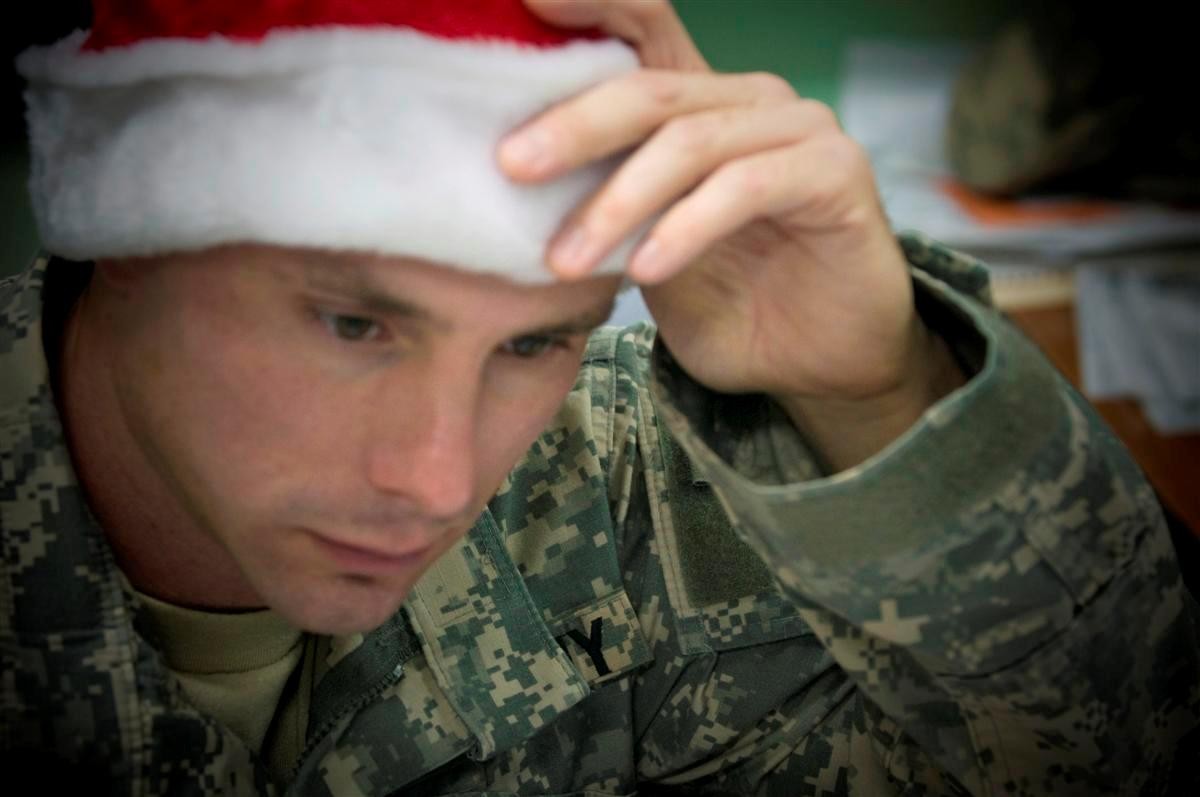JOINT BASE BALAD, Iraq -- Holiday joy and holiday stress go hand in hand, especially for deployed servicemembers and their families.
For those serving at Joint Base Balad, Iraq, the Air Force Mental Health Clinic and the 55th Medical Combat Stress Control clinic can assist servicemembers and civilians who are overwhelmed or overstressed this holiday season. Similar services are offered to servicemembers and Department of Defense civilians theater-wide and stateside.
"People often get stressed around the holidays because they try to do too much - they overextend themselves financially and they have unrealistic expectations of themselves and others," said Air Force Maj. David Linkh, chief of the 332nd Expeditionary Aerospace Medicine Squadron Air Force Mental Health Clinic at JBB and a Queens, N.Y., native.
"Deployed personnel have an added challenge insofar as they are separated from their loved ones and may miss their comforting holiday rituals, an opportunity to visit with extended family and religious observances with their congregation."
Maj. Saul Cardona, the family life chaplain with the 13th Sustainment Command (Expeditionary), said separation is the biggest stressor during long deployments, in addition to combat operations and exhausting work hours.
Cardona, an AAfA+-asco, Puerto Rico, native, said separation from loved ones around the holidays can create a sense of emptiness in Soldiers that could lead them to take unnecessary risks or become careless during missions.
"Separation creates an emotional vacuum that attracts behaviors and consequences that can affect the overall mission," he said.
Deployed servicemembers who are stressed or alone should connect with the people around them, said Cardona.
Linkh said stressed Warfighters should use simplicity to avoid becoming overwhelmed.
"Don't try to make up for your absence by overspending online or planning the once-in-a-lifetime trip to Disney World immediately upon your return," he said. "Give it time. There will be opportunities to celebrate with family and friends when the deployment ends."
As hard as it can be to be away from home this time of year, Linkh said servicemembers' families can struggle just as much at home.
Linkh said Warfighters should maintain open lines of communication to help their families get through deployments, but it is important to remain realistic when planning phone calls and e-mails.
"It is important to be flexible and find a schedule that works for you, and takes high holiday volume and other complications into account," he said.
Cardona said family members can reach out and volunteer to make the most out of the holidays. "Helping others is a very effective way of combating stress while helping to maintain healthy human connection," he said.
Linkh said low-key activities - without setting expectations too high - can help keep stress levels on an even keel during the holidays.
"Trying to do everything they might normally do during the holiday season in 10 to 14 days could be a recipe for burnout, and a less than enjoyable holiday for all involved," he said.


Social Sharing